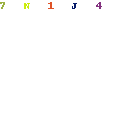Fiji is a South Pacific island nation located in the Melanesian region. With a population of around 905,502 people, it is one of the least populous countries in the region. Fiji is a parliamentary republic and its military consists of two branches: the Republic of Fiji Military Forces (RFMF) and Fiji Police Force. The RFMF are responsible for defending the country’s borders and sovereignty, as well as providing security to its citizens. In terms of defense spending, Fiji spends approximately $80 million annually on its military, making it one of the highest defense spending nations in Oceania. The country also participates in several regional security initiatives such as those organized by the Pacific Islands Forum (PIF). Fiji is also a member of both the United Nations (UN) and Commonwealth, and has close ties with other Commonwealth members such as Australia and New Zealand. See naturegnosis to learn more about the country of Fiji.
Defense
The defense of Fiji (2009) comprises about 3,500 men enlisted with 6,000 men in reserve. Combat forces are organized into seven battalions and seven smaller battleships. The material is of Western origin. For a long time, Fiji has been involved in UN peacekeeping operations with some of its combat forces, for example. in Iraq (UNAMI) and in Egypt (MFO). Defense costs decreased in 1985–2007 from 2.8% to 1.4% of GDP. To see related acronyms about this country, please check ABBREVIATIONFINDER where you can see that FJI stands for Fiji.

Fiji has volunteered military service from the age of 18. The country has actively contributed to the UN and other peacekeeping operations. Fiji has no air force, or its own navy. The army is very easily equipped and has no aircraft or helicopters. The total force figures for Fiji’s armed forces are 3,500 active personnel, including 300 personnel in a sea component, with a reserve of about 6,000 personnel (2018, IISS).
International operations
Fiji participated in 2018 in UN operations in Iraq (UNAMI) with 165 personnel, in Lebanon (UNIFIL) with 136 personnel, and in Syria/Israel (UNDOF) with 290 personnel.
In addition, Fiji had 170 personnel in Egypt as part of the presence of MFO (Multinational Force and Observers).
In September 2013, the government presented its first draft of a new constitution. It was criticized by international human rights organizations for not complying with international standards for the protection of human rights.
- COUNTRYAAH: Do you know where is Fiji on the world map? Come to see the location and all bordering countries of Fiji.
In September 2014, the military dictatorship held parliamentary elections. Bainimarama’s FijiFirst did not surprisingly win 59.2% of the vote, gaining 32 out of Parliament’s 50 seats. Bainimarama had set up the party 6 months earlier. The army chief therefore continued on the post of prime minister. The period leading up to the election was marked by numerous human rights abuses. In August, the dictatorship initiated police investigation by the human rights organization Citizens’ Constitutional Forum, accused of breaking the electoral law by conducting seminars on democracy and human rights. In June, the regime had launched police investigations against 2 university employees, who had urged the police to halt the harassment against journalists.
In March 2014, the British Commonwealth Council of Ministers decided to change Fiji’s suspension to apply only to the Commonwealth Council. After the September election, the Commonwealth decided to completely suspend the suspension.
In October 2014, the country was subjected to a regular review of human rights by the UN Human Rights Council. More than 50 countries had critical comments on the situation in the country. Freedom of speech is severely limited; self-censorship abounds because of security forces’ assaults and threats against journalists; the security forces regularly use torture and abuse are not investigated, which is why the guilty are not brought to justice either.
In October 2015, Parliament elected Major General George Konrote as president by 31 against 14 votes. He took over the post the month after.
In February 2016, Fiji was hit by Category 5 cyclone Winston. It cost 43 lives and 62,000 were made homeless as a result of the devastation. The lack of contingency plans and the large area of the damage occurred caused the emergency relief to take a very long time, and some were still homeless six months later.
In March, the country ratified the UN Convention against Torture, but with a number of reservations, including the very definition of torture. Fiji’s constitution gives immunity to being able to hold security forces and soldiers responsible for torture and ill-treatment, and in addition, the authorities were not particularly willing to prosecute specific cases.